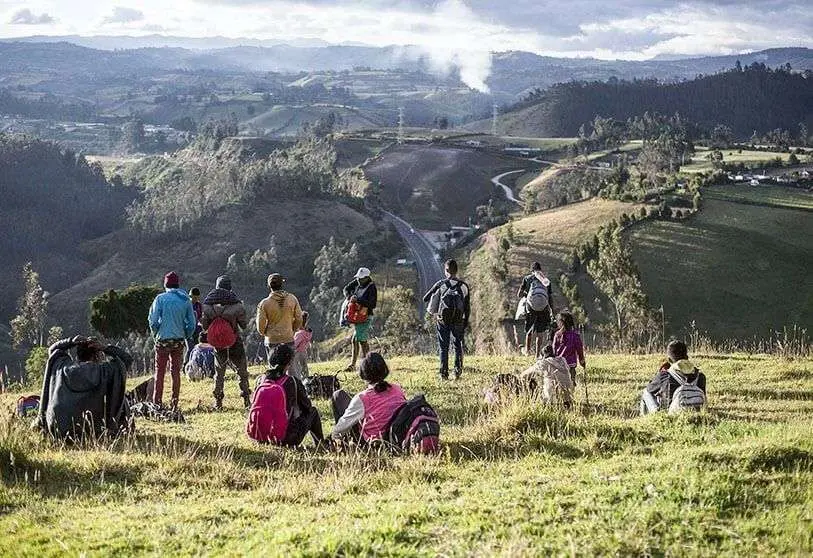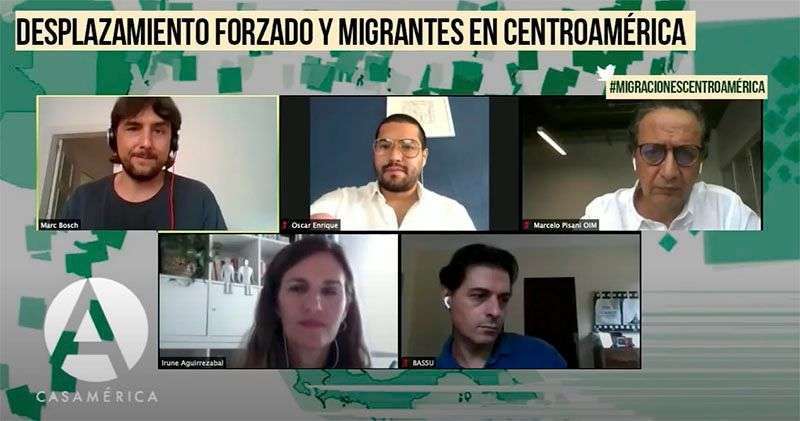Emigration to Central America at the time of COVID-19: Wanting to leave and not being able to

Central America is home to some of the most violent countries in the world, such as Honduras and El Salvador. In addition to the problems of insecurity, there are also inequalities. People from these nations have been migrating for years in search of a better future for themselves and their families to the United States, Mexico or other states in the region, such as Costa Rica. The arrival of the coronavirus has added to this complex situation. Mobility restrictions and lack of income due to the pandemic have left refugees and asylum seekers with no options. To analyse what is happening, Casa América organized a virtual conference on Tuesday.
Central American countries were already in a delicate economic situation before the coronavirus, which will be aggravated by the pandemic. "Social security systems are very weak, informal employment is widespread and the economic impact will be very strong," warned Marcelo Pisani, Regional Director of the International Organization for Migration (IOM), at the Casa América dialogue.

"The context of Central America is very complex and it is a region that has traditionally moved a lot. Add to this the political problems in Nicaragua, where many people are fleeing," said Giovanni Bassu, UNHCR's Regional Representative for Central America. Mr. Bassu explained that the reasons why migrants leave the region have not changed, but the conditions for doing so have changed. "Governments have imposed restrictions on mobility, which is why asylum applications have decreased so much over the past two months. When this situation comes to an end, many people will consider leaving the countries, the problem will be that the places they have migrated to will have tightened their conditions of entry," the expert lamented.
"Border controls and lack of transport make it impossible for migrants and refugees to leave at the moment," said Marc Bosch, project manager for Médecins Sans Frontières in Latin America. The COVID-19 crisis makes the populations of these countries even more vulnerable, according to Mr Bosch. In addition to the impossibility of getting out, there has also been a drop in remittances and an increase in violence. Despite the severe pandemic situation, deportations have not stopped and the health system in Central America is beginning to show signs of exhaustion.
Irune Aguirrezabal, researcher on gender issues at the Autonomous University of Madrid and former IOM staff member, said that due to the region's institutional weakness, there are no gender-sensitive public policies to address this scenario. "Ultimately, women are the most affected and have the least voice in decision-making," said Mr. Aguirrezabal.








